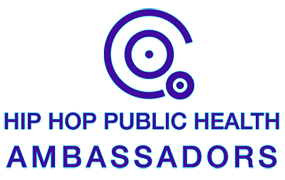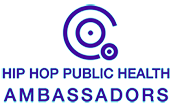Bisexual exposure time, held annually on 23 September, is actually nominally about bi+ individuals having the ability to end up being
seen
. Bi+ supporters usually keep in mind that the “B” in LGBTQIA+ is “hushed” â noted in the phrase, but rarely taken care of.
Despite the fact that
numerous
studies
demonstrate that the audience is the largest piece on the LGBTQIA+ cake, there is the least number of research devoted especially to comprehending all of our encounters and exactly why unfavorable results tend to be greater in regards to our group.
In comparison to gay males and lesbians, we as bisexuals tend to be
inclined
to stay in the cabinet, and unfortunately we’re less likely to think of the sexuality as a confident factor in our everyday life. Is the problem right here “visibility”, or, is an activity much deeper at stake?
In my own experience as a cisgender girl, i am aware whenever i discovered my self in my own first long-term “same sex” connection We ceased referring to bisexuality. At long last, my queerness was actually visible, and I also found myself acknowledged into places and teams that had previously been very dangerous if you ask me.
The flip side of higher queer visibility was actually, however, that we experienced much more homophobia. There clearly was improved homophobic harassment on street along with other interpersonal tensions, amounting to feelings of exclusion of another kind.
I did not desire to damage my recently found belonging to fellow queers by making reference to my personal bisexuality. Allowing that silence simmer away implied that most the work used to do throughout that duration to accept myself personally was just actually limited, while the area that we designed for some other bisexual men and women was nil.
I
f you are anything like me, you’ll know that internalised biphobia is a big endeavor and is also nearly impossible to expunge without exterior service.
We distinctly understand that as I ceased writing about my affiliation with bisexuality, I was often really judgemental about friends or acquaintances who honestly spoken of the trouble of biphobia. My negativity toward my bisexual kin had been predicated on three attached presumptions which perpetuate biphobia.
My very first assumption had been that biphobia is not as really serious as homophobia. This is certainly a pervading opinion in some queer and right sectors identical, which warrants immediate interest.
Though studies
tv show
lots of inside the LGBTQIA+ neighborhood hold a notion that find bisexual women enjoy much more social acceptance, data about our overall health and social effects beg to vary. Bisexual women suffer from
larger costs
of mood and panic disorders than our very own lesbian and heterosexual alternatives and report having intimate violence at
higher costs
.
A recent document from the
LGBT Basis
in britain additionally identified that throughout their lockdown period there was clearly a 52per cent upsurge in calls about homophobia, 100% enhance about transphobia, and a whopping 450per cent rise in telephone calls about biphobia.
Clearly the pandemic has intensified the emotions of separation that bisexual people already face. In general, bisexuals of any gender are at greater risk of suicide than lesbians or homosexual guys.
There clearly was relatively almost no research or concept aimed at exploring the causes of negative outcomes and experiences for bisexual men and women. Perhaps the view that biphobia is much less really serious performs a component contained in this.
In my opinion, i understand this notion implied that I spent a lot of time fighting homophobia (both internalised and exterior) not biphobia alongside this. I could maybe not observe these struggles were interconnected, as battles against restrictive intimate and gendered norms. If something, I assumed that biphobia was merely an issue of homophobia, couched in other terms and conditions.

I possibly could perhaps not acknowledge the particular oppression which comes from
perhaps not
getting monosexual, the actual fact that I had skilled this first-hand. In maybe not going to to biphobia particularly, We often repeated the exclusionary attitudes that I had felt other people show to me before I happened to be in a “same intercourse” commitment.
This very first presumption is actually underpinned because of the next that I familiar with create, the biggest problem facing bisexuals is
just
a lack of interest, often couched as “visibility”.
Presence is seen as a frivolous request, particularly in spaces and moments that do not “actively” exclude bisexual folks. What exactly is missing from this comprehension is a lot of bisexual folks have a problem with willing to end up being
seen
whatsoever.
Considering the bad stereotypes of bisexuality â untrustworthiness, greediness, indecisiveness, contagion â the desire are “visibly” linked to the identification is certainly not straight forward. Bisexual females typically feel presence as items of intimate fetishization and targets for harassment and sexual assault from directly guys.
You will find a feeling in a lot of queer places that recognition of everybody in the phrase should be assumed, hence becoming vocal is actually consequently overkill. Occasionally, needs for bisexual visibility can seem to point out problems that merely isn’t really here, which feeds in to the assumption that it is simply a concern of attention. As feminist scholar Sara Ahmed has
mentioned
, sometimes when you highlight the trouble, you become the problem.
These first two presumptions coalesce to create everything I accustomed hold as my personal third expectation, that bisexuals should simply reject any seemingly “directly” needs.
The hetero/homo binary is actually an asymmetrical connection, consequently heterosexuality occupies a privileged position in society. It is sometimes believed that to-be on the “right” area of queer activism should imply purging such a thing affiliation with all the “other area”.
Get these contours from Queer Nation’s
manifesto
, published in 1990, as an example:
I’d like there become a moratorium on directly wedding, on babies, on general public shows of passion one of the opposite gender and news photos that encourage heterosexuality. Until I am able to enjoy the exact same independence of movement and sexuality, as straights, their own privilege must prevent therefore ought to be offered up to me and my personal queer sisters and brothers.
This manifesto, a vital text in queer background, enables area for “queer” but only provided that nothing demonstrably “straight” is actually involved. If you are bisexual and possess a so-called “opposite gender” partner, if you have them from inside the cabinet? If you keep from causing “public exhibits of passion”?
Bisexual existence is actually made impossible unless the actual parts which make one bisexual, rather than gay or lesbian, stay concealed.
This nourishes in to the belief, and even anxiety, that bisexuals can merely “pick” to get directly should they need. This is exactly why, some bisexuals have trouble locating queer partners, considering the lingering danger of “direct” betrayal. Within right contexts, needless to say, discover comparable presumptions that operate â plus usually actually and intimately aggressive steps â that keep bisexual people in an impossible spot between worlds.
What is actually underlying these assumptions could be the biphobic question â
but would bisexuals even can be found?
This visits the center of case of alleged “bisexual visibility”. Exposure is not about interest, it is regarding possibility to occur, and get one’s life recognised.
Queer theorist Judith Butler makes use of the phrase “livability” to describe the condition of to be able to end up being intelligible as a subject. If you are not intelligible (browse: noticeable) it’s not possible to truly occur, you’re not actually residing.
Although we might find it hard to
want
to be noticed as bisexual for the reason that pervading stereotypes and assumptions, biphobia shouldn’t be overcome without validation of bisexual existence.
W
hen bisexual folks are implicated to be too singing, or trying out continuously queer space, the question that lingers for my situation now is: why do we that is amazing there can be just finite area with which to commemorate queerness? Precisely why would validating another person’s existence invalidate others’s?
I believe that too often the assumptions i’ve outlined are held by directly, bisexual and various other queer men and women as well, therefore means that countless bi+ individuals think pushed to stay hushed, to remain “invisible”, this is certainly, not to truly “exist”.
All this does is narrow the extent of queer opportunity, reinforcing a difficult range between “right” and “queer” planets. If a lot more bi+ citizens were allowed to openly “exist” these tough outlines would easily crumble.
This isn’t about thinking bisexuality is much more “radical”, it’s simply about realising that we can â and want â to smash intimate norms in the planets we rapidly relegate individuals (typically ourselves) to.
I am attempting to be much more singing about my bisexuality after many years of silence because I look at method in which it offers not only narrowed my very own self-conceptions but in addition has resulted in small space-making for other individuals. It was something that we merely realised as soon as I happened to be solitary once more and started online dating men and women over the gender spectrum.
I thought that I’d accomplished the work to battle my inner battles, but I realize since attaining bisexual intelligibility calls for ongoing work, from partners and bisexual people identical.
Meaning perhaps not presuming addition but working for addition. It means challenging your biphobic assumptions although (and possibly particularly if) you happen to be bisexual.
We need to do the job to produce this room between worlds not only inhabitable but flourishing. And this is what Bisexual Visibility Day is truly pertaining to: producing bisexual existence possible.
Hannah
McCann
is a Melbourne based writer and scholastic. She writes on queer femininity, charm and identity. You will find the lady on Twitter
@binarythis
or read more of the woman ideas at
www.binarythis.com
.

